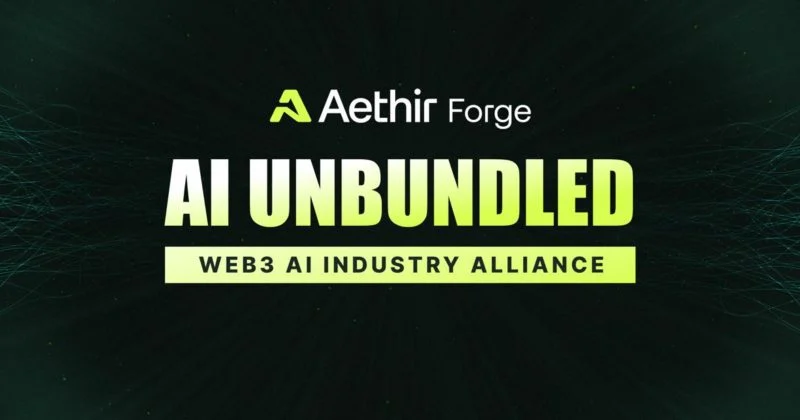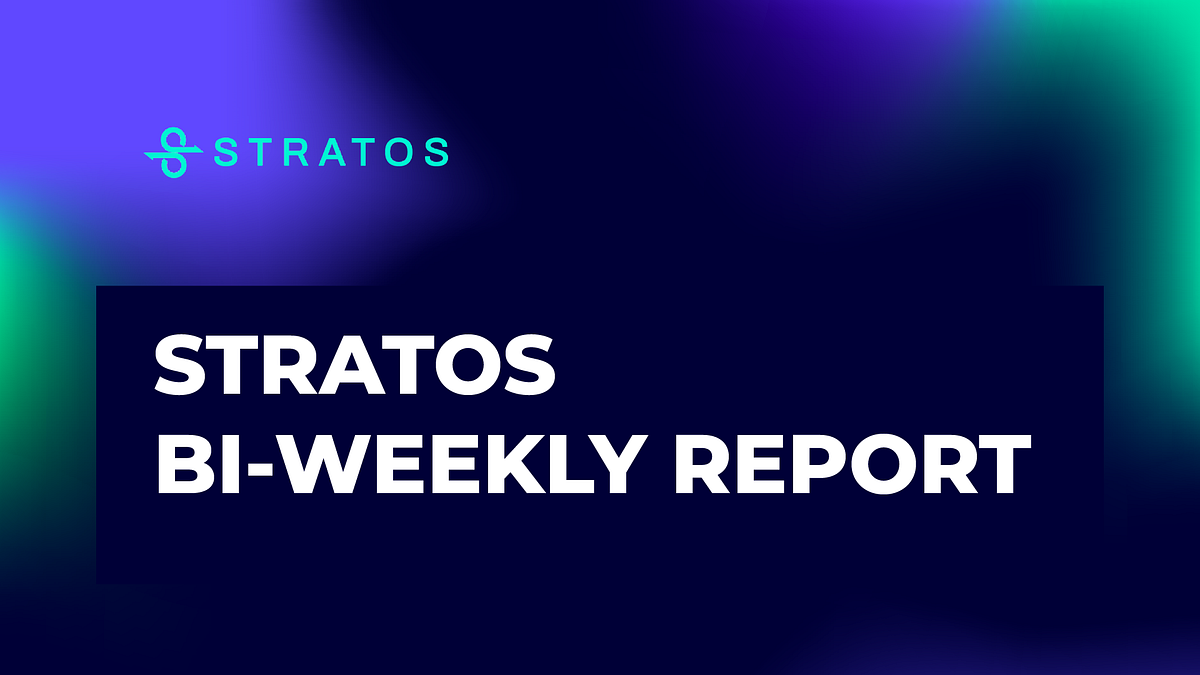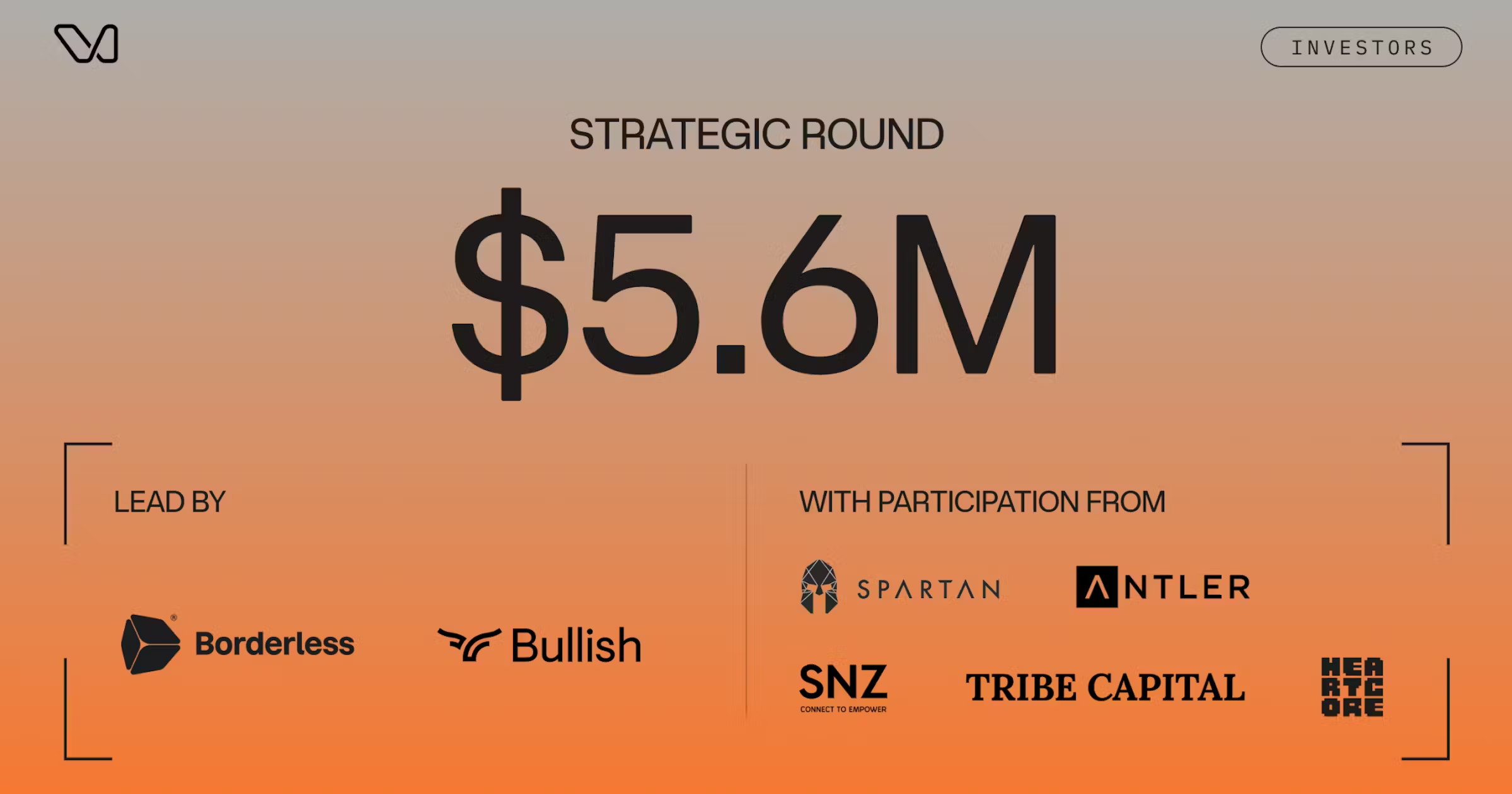Latest Edge News

4 months ago
Dawn Launches Black Box DePIN Device
**Dawn Launches Black Box DePIN Device*
The Internet has revolutionized our lives, enabling global connectivity and rapid information exchange. However, the centralized nature of its infrastructure poses risks of control and exclusion. Decentralization advocates have historically fought for open standards and privacy rights, leading to innovations like Bitcoin and Ethereum. Today, the focus is on Decentralized Physical Infrastructure Networks (DePIN), empowering users to contribute to the Internet's foundation.
The DePIN movement, supported by technologies like Solana, envisions a future where households actively participate in maintaining Internet infrastructure. With the rise of artificial intelligence and edge computing, the shift towards decentralized physical infrastructure is becoming inevitable. Projects like DAWN are paving the way for individuals to engage with edge infrastructure, earning rewards and reshaping the wireless telecommunications landscape. By reimagining hardware like routers, DePIN protocols offer consumers the opportunity to shape a more decentralized Internet ecosystem.

4 months ago
Theta Network and AWS Join Forces to Launch Custom Amazon AI Chips Trainium & Inferentia on EdgeCloud
Theta Network and AWS Join Forces to Launch Custom Amazon AI Chips Trainium & Inferentia on EdgeCloud Powered by Amazon. Decentralized by Theta. The first blockchain network to harness custom AI silicon from the world’s largest cloud service provider. Now seamlessly integrated into EdgeCloud Hybrid. Theta and AWS have spent the past several years collaborating on multiple technical fronts and over the last six months, the two teams have worked in close collaboration to seamlessly integrate their platforms. Recognizing Theta EdgeCloud Hybrid as the de facto leader in decentralized cloud infrastructure, trusted by dozens of global academic institutions, professional sports franchises, and top-tier esports organizations, AWS has taken a major step forward. For the first time, AWS has approved a decentralized platform to integrate its cutting-edge AI silicon: AWS Trainium and Inferentia EC2 instances. This milestone makes Theta the first blockchain network to deploy Amazon’s next-generation chipsets, delivering unmatched performance for AI, video and media workloads. Combined with over 30,000 NVIDIA GPUs contributed by the Theta community, EdgeCloud Hybrid now offers a globally distributed compute layer with unprecedented performance-to-cost efficiency — marking a breakthrough moment in the evolution of cloud services. Secured by THETA blockchain and powered by TFUEL payments, global customers can now access the best of AWS compute and Theta’s decentralized GPU marketplace, all through a single integrated EdgeCloud user interface.

7 months ago
AI Unbundled: Advancing AI Innovation in Web3
AI Unbundled: Advancing AI Innovation in Web3
Aethir, a pioneer in decentralized cloud infrastructure for AI and gaming, has launched 'AI Unbundled,' a new industry alliance aimed at advancing artificial intelligence innovation within the web3 ecosystem. The initiative aims to streamline access to critical infrastructure for AI development, providing AI startups with funding, access to decentralized resources, and opportunities for collaboration through co-branded events. Through AI Unbundled, AI builders can tap into high-performance, cost-efficient infrastructure crucial for training and deploying advanced models.
The alliance, led by Aethir, brings together key decentralized infrastructure providers, blockchain networks, and investment firms such as 0G Labs, Biconomy, Polyhedra, Oasis Protocol Foundation, and more. AI startups can benefit from joint grant funding, subsidized access to decentralized GPU infrastructure, and access to tools like ERC-7857 for securing AI agents. The program also includes industry events, workshops, hackathons, and shared resource hubs for ecosystem introductions and technical mentorship.

8 months ago
US Senate Banking Committee to Vote on Updated GENIUS Act for Stablecoin Regulation
The US Senate Banking Committee is preparing to vote on the Republican-led stablecoin framework bill known as the GENIUS Act on March 13. This bill has undergone significant revisions following bipartisan discussions, with input from both Democratic and Republican senators. Co-sponsor Senator Bill Hagerty announced the updated version on March 10, emphasizing its improvements in key areas such as consumer protections, authorized stablecoin issuers, risk mitigation, and transparency. The bill aims to regulate US dollar stablecoin issuers with market caps exceeding $10 billion, primarily targeting Tether (USDT) and Circle's USDC, under Federal Reserve oversight, while allowing smaller issuers to choose state-level regulation.
The latest updates to the GENIUS Act have sparked discussions within the crypto community, particularly regarding the competitive landscape for stablecoins. Dom Kwok, co-founder of the Web3 learning app EasyA, noted that the bill provides US-issued stablecoins with a competitive advantage over foreign counterparts. The updated legislation imposes stringent standards on foreign stablecoin issuers concerning reserve and liquidity requirements, as well as compliance with anti-money laundering regulations. This could potentially disadvantage many foreign issuers, giving USDC and Ripple Labs' Ripple USD (RLUSD) an edge in the market.
Despite these advancements, the GENIUS Act still faces hurdles before it can be enacted into law. Following the Senate Banking Committee's vote, the bill will proceed to a full Senate floor vote, where it will be subject to further debate. If it successfully passes through the Senate, it will then move to the House of Representatives. Should the House approve the bill without amendments, it will be sent to President Donald Trump for final approval or veto. The outcome of this legislative process could significantly shape the regulatory landscape for stablecoins in the United States.

9 months ago
Theta Labs Partners with Kangwon National University to Enhance AI Research
Theta Labs has recently expanded its AI research partnerships by welcoming Kangwon National University into its Theta EdgeCloud decentralized GPU network. This collaboration marks a significant milestone, as Kangwon National University becomes the 23rd academic customer of Theta EdgeCloud. The partnership aims to enhance AI research capabilities, achieving an impressive GPU utilization rate exceeding 85% across Theta's global network, alongside more than 230 million TFUEL locked by Elite Booster node operators. The EdgeCloud platform is already supporting various enterprises and academic institutions, including NHL teams and renowned universities, thus solidifying its role in advancing AI research and real-world applications.
Professor Kyeongpil Kang, who leads the Data Analytics & Machine Intelligence (DAMI) Lab at Kangwon National University, specializes in natural language processing, machine learning, and data mining. The DAMI Lab focuses on large-scale AI research, exploring areas such as fine-tuning large language models (LLMs), machine learning solutions for specific domains, and AI-driven insights in fields like social sciences and medical AI. The collaboration with Theta EdgeCloud will provide the lab with access to a hybrid cloud-edge GPU computing platform, enabling researchers to conduct innovative experiments and develop advanced AI applications.
As the partnership progresses, both Professor Kang and Mitch Liu, co-founder and CEO of Theta Labs, express excitement about the potential of this collaboration. Liu emphasizes the importance of expanding GPU infrastructure to meet the growing demand while maintaining cost-effectiveness. The goal for 2025 includes a tenfold increase in the customer base, achieving over 95% GPU utilization, and locking in more than 2 billion TFUEL through elite edge node operators. This partnership not only enhances the capabilities of DAMI Lab but also strengthens Theta Labs' position in the decentralized cloud infrastructure space for AI and machine learning.

9 months ago
HashPower Secures $50 Million Investment for $HPX at AI & DePIN Powerhouse Event
HashPower recently announced a significant milestone by signing a Memorandum of Understanding (MOU) that secures up to $50 million in investment for its token $HPX. This announcement was made during the AI & DePIN Powerhouse event held in Hong Kong, which attracted over 2,000 attendees, including industry leaders, investors, and innovators. The event featured engaging panels and discussions on the future of decentralized AI and infrastructure, emphasizing the importance of collaboration in driving technological advancements within the blockchain ecosystem.
The strategic partnership established through this MOU involves several key players in the industry, including Aethir, Network3, and IoTeX, among others. The collaboration aims to foster growth in the decentralized infrastructure space by focusing on resource sharing, joint research initiatives, and targeted investments. This initiative is expected to propel the development of AI-powered decentralized infrastructure, enhancing the capabilities and efficiency of various applications within the blockchain domain.
In addition to the investment announcement, the AI & DePIN Powerhouse event showcased innovative projects like Network3, which is building a decentralized Edge AI infrastructure, and Autonomys, a decentralized AI stack designed for high-throughput applications. The event highlighted the evolving landscape of crypto mining, AI, and decentralized hardware infrastructure, setting the stage for future advancements in these interconnected fields. HashPower continues to lead the charge in revolutionizing the mining industry, making it more accessible and transparent for participants worldwide.

9 months ago
Mawari Launches Digital Entertainment City Namba: A Smart City Revolution
In a groundbreaking collaboration, Mawari has joined forces with Nankai Electric Railway Co., Ltd., Meta Osaka Co., Ltd., and e-stadium Co., Ltd. to launch the "Digital Entertainment City Namba" in Osaka, Japan. This innovative project aims to create the world’s first smart city that integrates artificial intelligence (AI), extended reality (XR), and decentralized physical infrastructure networks (DePIN) on a city-wide scale. By leveraging the unique strengths of each partner, the initiative seeks to blend advanced technology with everyday urban life, fostering a vibrant digital culture and addressing social challenges through community engagement.
Mawari's pivotal role involves deploying edge computing and rendering devices across Nankai’s properties to establish a decentralized streaming infrastructure. This setup enhances user experience by minimizing latency and enabling real-time interactions with lifelike AI avatars. These avatars are designed to assist in various tasks, such as guiding tourists and facilitating communication across language barriers. The project is a significant milestone for Mawari, as it aims to democratize AI-driven immersive experiences, with CEO Luis Oscar Ramirez emphasizing its potential for mass adoption and tangible social impact.
The projected impact of the Digital Entertainment City Namba extends beyond entertainment, targeting sectors such as tourism and labor. By providing multilingual 3D guides and immersive cultural experiences, the project aims to attract more foreign visitors to Japan, thereby boosting local businesses. Additionally, it addresses Japan's labor shortage by creating flexible, remote work opportunities through AI-driven avatars, promoting inclusivity for diverse groups. This initiative not only enhances accessibility but also aligns with Japan’s pressing need for innovative workforce solutions, marking a transformative step towards a digitally integrated urban future.

10 months ago
Stratos Network Launches Metanode Upgrade and Prepares for Major Expansion
In a significant development for the Stratos network, the team has successfully completed the Metanode Migration on the Mesos Testnet and launched the new Metanode Network on the mainnet. This upgrade has resulted in a remarkable enhancement in network performance, allowing for faster data retrieval and improved data transfer capabilities. Notably, the Metanode Network is now able to handle the same volume of traffic as before the migration while utilizing only about 10% of the previous hardware resources. This advancement not only strengthens Stratos’ decentralized infrastructure but also enhances its efficiency and scalability, paving the way for continued network growth.
Following the deployment of the Metanode update, the Stratos network faced attempts from some users to exploit strategies that were effective prior to the upgrade. These attempts involved uploading and downloading large volumes of files to skew rewards in favor of their storage provider (SP) node. However, the enhanced Stratos network managed to handle the increased traffic seamlessly, demonstrating its resilience and readiness for high-traffic usage. This stress test has confirmed that Stratos is well-prepared for its upcoming release of Stratos Drive and the Stratos Interplanetary File System (SPFS), which is expected to host the largest IPFS cluster upon its launch.
In addition to these technical advancements, Stratos has formed strategic partnerships with VeWare.io and EdgeX to bolster its ecosystem. The collaboration with VeWare.io aims to transform crypto insights and data integrity, while the partnership with EdgeX will integrate Stratos’ decentralized storage into its intelligent edge network, enhancing services for Web 3.0 projects and decentralized applications (dApps). Furthermore, Stratos has joined forces with SOLO to revolutionize token distribution through mining-based models, ensuring scalable, private, and fair dApps and AI agents. With the final round of testing for Stratos Drive underway, the community is eagerly anticipating the launch of this game-changing decentralized storage solution, which promises to empower users to take control of their data in the evolving digital landscape.

10 months ago
Wingbits Raises $5.6M to Revolutionize Rewards-Based Plane Tracking with DePIN Technology
Wingbits Raises $5.6M to Revolutionize Rewards-Based Plane Tracking with DePIN Technology
Wingbits, the Web 3.0 startup based in Stockholm, Sweden, has secured $5.6 million in funding led by Borderless Capital and Bullish Capital, with support from Spartan Group, Tribe Capital, Antler, SNZ, and Heartcore. This funding round brings Wingbits' total funding to $9.2 million as they introduce the first decentralized physical infrastructure network (DePIN) for aviation. The company aims to become the largest airplane tracking network globally by implementing well-designed incentives and execution strategies, as stated by Álvaro Gracia, Partner at Borderless Capital.
This recent funding follows a $3.5 million seed round just six months ago, supported by investors like Borderless Capital, Tribe Capital, and Antler. Co-founded by Robin Wingardh and Alex Lungu, Wingbits has experienced rapid growth, expanding its network at a rate six times faster than any previous flight tracking system. Alasdair Foster, CEO of Bullish Capital, expressed excitement about partnering with Wingbits, highlighting their disruptive approach to the flight tracking industry by utilizing blockchain to incentivize high-quality data supply.

10 months ago
io.net Achieves SOC 2 Compliance, Strengthening Its Position in the DePIN Market
io.net, a leading decentralized physical infrastructure network (DePIN) protocol, has recently achieved Service Organization Control 2 (SOC 2) compliance, marking a significant milestone in its commitment to security and operational transparency. This certification indicates that io.net has undergone rigorous audits to ensure its systems are secure and that it adheres to high standards of data integrity. Gaurav Sharma, the technology chief of io.net, emphasized that this achievement not only benefits all users but is particularly appealing to enterprises that require partnerships with organizations maintaining top-tier data protection standards.
Achieving SOC 2 compliance is often regarded as the gold standard in data security, providing io.net with a competitive edge in the market. The certification validates the protocol's robust security controls and standardized processes, which are crucial for defending against potential exploits and breaches. With a vision of offering decentralized GPU compute solutions, this certification lays a solid foundation for the protocol's future growth and expansion, allowing it to operate on a global scale while competing with industry-leading security standards.
The DePIN sector, valued at approximately $27.9 billion, has seen significant trading activity, with io.net's native token, IO, ranking among the top 20 protocols in this space. With a market cap of $389 million, IO has demonstrated resilience and growth potential despite recent market fluctuations. Furthermore, io.net's collaborations with AI protocols, such as Injective and Alpha Network, aim to explore the intersection of blockchain and AI, positioning the protocol for potential leadership in the DePIN market in the near future.
Signup for latest DePIN news and updates